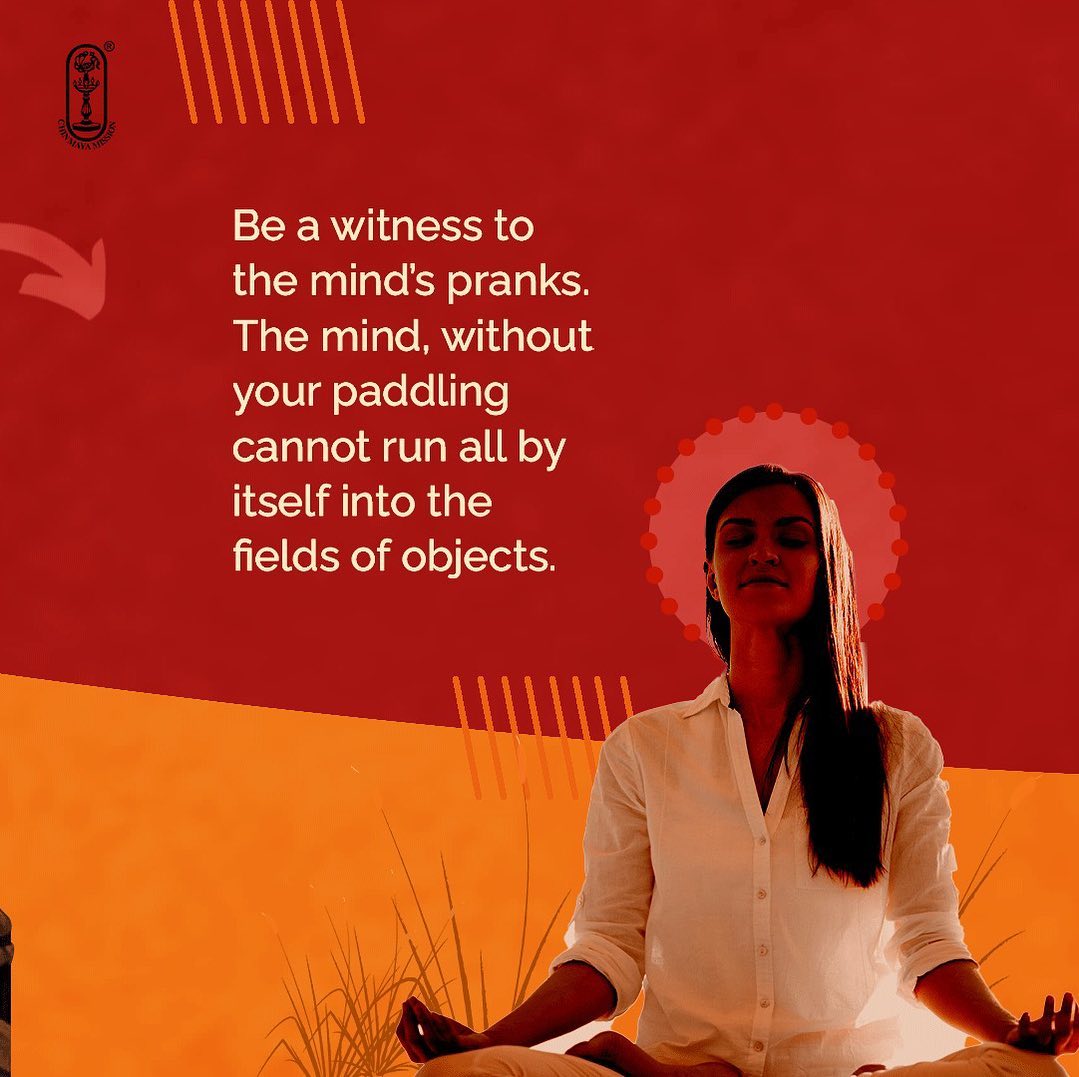Srimad Bhagavad-Gita : Chapter-18, Slokams - 54.
========================================================================
========================================================================
Saturday, November 12, 2022. 09:00.
Chapter-18. Moksha-sannyasa-yogam.
=========================================================================
Very important slokams
Read carefully and understand well.
=========================================================================
Slokam-54.
"brahmabhutah prasannatma na socati na kankshati,
samah sarveshu bhuteshu madbhaktim labhate param."
--------------------------------------------------------------------------------------------------------------------------
Slokam-54.
"One who is thus transcendentally situated at once realizes the Supreme Brahmam. He never laments nor desires to have anything; he is equally disposed to every living entity. In that state he attains pure devotional service unto Me."
-------------------------------------------------------------------------------------------------------------------------
Translation :
brahma-bhutah = being conscious of that "I am brhamam";
prasanna-atma = ( then ) sadhaka becoming pleasant;
na socati na kankshati = neither laments nor desires;
sarveshu bhuteshu samah = that man who observes all living and non-living things equally;
param madbhaktim = supreme devotion in Me;
labhate = attains.
---------------------------------------------------------------------------------------------------------------------------
Commentary :
Now Lord Krishna expounds upon the characteristics of one who has become qualified for realising the state of the brahman or spiritual substratum pervading all existence.
One who has experienced the wisdom derived from the manifestation of pure knowledge and is of cheerful mind without any desire for sense objects, who neither grieves what is lost or craves for what is unachieved, who due to inner satisfaction resulting from perception of the atma or immortal soul, regards a clod of earth, a stone and a lump of gold as all the same and looks at all jivas or embodied beings with the same equanimity.
Such a one is not a friend to those who praise and honor him; nor an enemy to those who criticise and ridicule him.
Such ones attain supreme state known as bhakti or exclusive loving devotion unto the Supreme Lord. Bhakti is the supreme perfection of all knowledge. The famous slokam in Bhagavat Purana I.VII.X beginning atmaramas ca munayo meaning :-
All types of liberated beings who delight in communion with the immortal soul and are free from material bondage; still eagerly desire to render bhakti unto the Supreme Lord Krishna or any of His authorised incarnations as revealed in Vedic scriptures.
This confirms that Lord Krishna has transcendental qualities and divine attributes so wonderful that even those who have achieved moksa or liberation from material existence are still enthused to worship and serve Him.
Liberated beings referred to are the four Kumaras led by Sanandana.
In this way explaining the highest platform as that of one who renders bhakti unto the Supreme Lord with total purity of heart who is established in atma tattva or realisation of the immortal soul.
Devoid of these qualifications it is not possible to realise the state of the brahman in which one perceives all jivas in a state of perfect equanimity.
In the absence of realising the state of brahman it is impossible to become established in atma tattva and devoid of atma tattva is is impossible to achieve the supreme destination and attain communion with the Supreme Lord.
Lord Krishna gives further characteristics of the spiritually qualified.
The words brahma-bhutah means comprehending the eternal nature of the atma or immortal soul, the infinite nature of its consciousness and its essential relationship with the Supreme Lord.
This essential relationship consists in realising that one is dependent upon the Supreme Lord in every aspect of existence and to be grateful to Him for everything.
The word prasanna means pure hearted, lucid and clear internally, uncluttered by turbid and painful experiences.
Na socati means does not grieve.
Na kanksati means does not crave.
Since all the love that such an aspirant feels is totally and exclusively for the Supreme Lord.
The only grief such an aspirant ever experiences is separation from Lord Krishna and the only craving such an aspirant ever experiences is communion with Lord Krishna.
Samah means equanimity and as such looks at all jivas or embodied beings equally, knowing the atma resides equally in all.
It also can manifest as an attitude of indifference to anything not related directly to the Supreme Lord, avoiding mundane actions and shunning worldly attachments.
Mad- bhaktim means exclusive loving devotion unto the Supreme Lord Krishna in the form of sublime and exquisite bliss occasioned by the atmas rapturous communion with Him, the Supreme Lord of all lords.
The sole creator of the cosmic manifestation, its evolutions, progressions and dissolutions.
Who is the absolute antithesis to all that is evil.
Who is the root source of all creation and the depository of boundless, unlimited and glorious illustrious attributes and qualities.
Who is united with Sri Laksmi the goddess of fortune.
Who is the epitome of beauty and the sovereign of every jiva being the source of every atma.
Lord Krishna is the supreme attainment, transcendental, all pervading, omnipotent, omniscient, far beyond material nature.
The result of remaining steadfast in realisation of the Brahmam or spiritual substratum pervading all existence is that serenity and tranquillity is the natural state of mind which is unperturbed by what may have been lost as well as devoid of desires over what is yet to be gained for such an unwavering mind does not identify itself with the physical body or concern itself with mundane pursuits.
Hence exhibiting equipoise to all jivas or embodied beings due to the absence of distractions arising from obsession and aversion such a one attains supreme devotion to the Supreme Lord Krishna in the form of perceiving that He is existing as paramatma the omniscient all pervading super soul in every jiva.
To be continued ....
========================================================================










Comments
Post a Comment